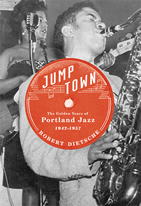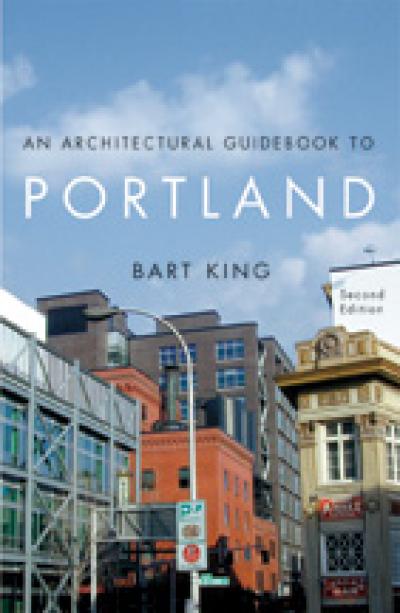
Jumptown
Robert Dietsche
Foreword by [[Jim Swenson]]. Afterword by [[Lynn Darroch]].
A fascinating blend of music, politics, and social history, Jumptown sheds light on a time and place overlooked by histories of Portland and jazz. For a golden decade following World War II, a thriving African American neighborhood—that would soon be bulldozed for urban renewal—spawned a jazz heyday rarely rivaled on the West Coast. Such luminaries as Duke Ellington, Charlie Parker, Oscar Peterson, Dave Brubeck, and Wardell Gray headlined Portland clubs and traded chops with the up-and-coming local talent.
The Dude Ranch. Lil' Sandy's. McClendon's Rhythm Room. The Frat Hall. The Chicken Coop. The Uptown Ballroom. Jazz historian Bob Dietsche leads a guided tour of the main jazz spots—from supper club to dance hall—capturing the emotion, excitement, and energy of an evening on the town. His book for the first time collects hundreds of pieces of local jazz history—photographs, personal recollections, reviews, handbills—to create "an anatomy of a jazz village."
Dietsche's compendium of stories and moments brings to life the citizens of this jazz village—the musicians and dancers, the disc jockeys and promoters, the critics and music teachers, the club owners and patrons. Jumptown celebrates and preserves this rich cultural past and showcases its continuing influence. In an afterword, Lynn Darroch recaps the highlights in Portland jazz during the past 40 years and shows how “Portland's 21st century jazz scene reflects the city's original golden age, and the spirit of the Avenue remains in the sounds of today.”
About the author
Robert Dietsche has taught courses in jazz history at Oregon colleges and universities and was the longtime host of “Jazzville” on Oregon Public Broadcasting radio. He is the founder and former owner of Django Records, Portland’s legendary used-record store. His writings about jazz have appeared in numerous publications, including Jazz Journal, The Oregonian, Willamette Week, Pittsburgh Press, and the Toledo Blade.
Read more about this author
"Action central was Williams Avenue, an entertainment strip lined with hot spots where you could find jazz twenty-four hours a day… You could stand in the middle of the Avenue (where the Blazers play basketball today) and look up Williams past the chili parlors, past the barbecue joints, the beauty salons, all the way to Broadway, and see hundreds of people dressed up as if they were going to a fashion show. It could be four in the morning. It didn’t matter; this was one of those 'streets that never slept.'"




